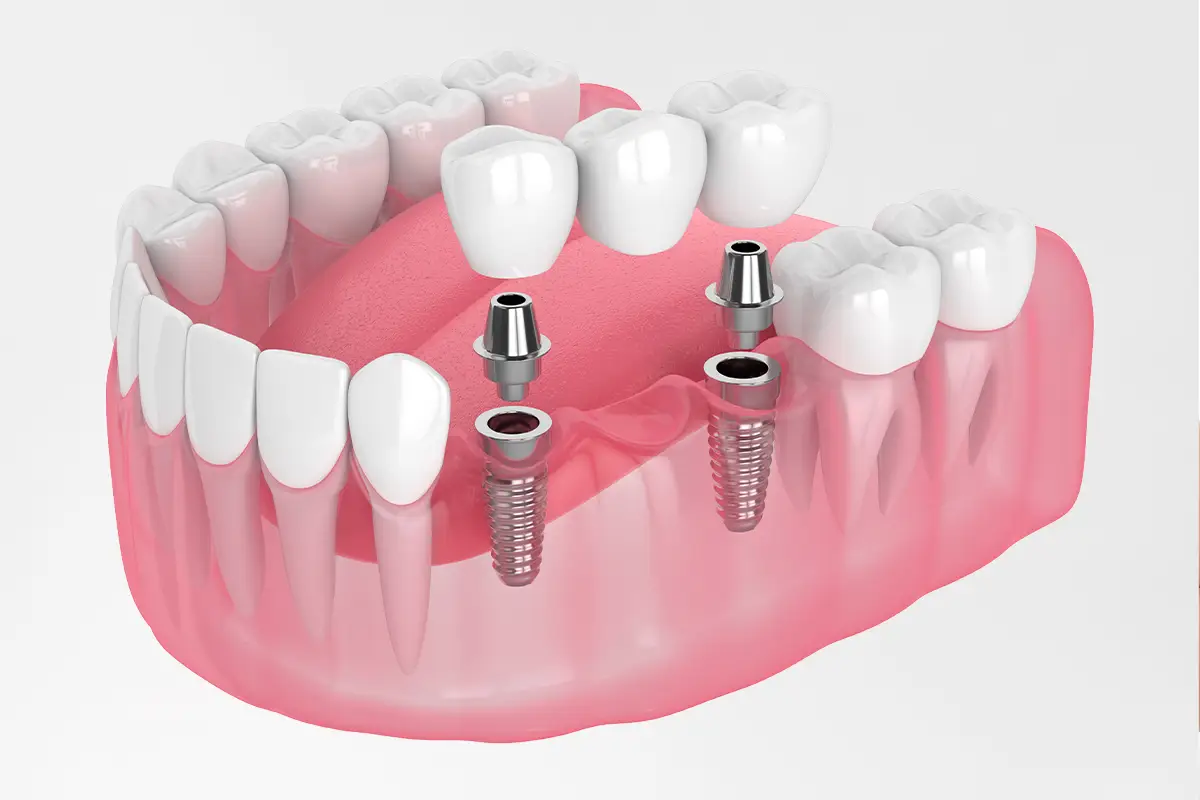Dental Implant in Turkey

What is a Dental Implant?
Dental implants are artificial tooth roots made from titanium or titanium compounds, which are biocompatible and extremely durable. These implants are placed into the jawbone to replace missing teeth, allowing for stable and healthy dentures that restore both functionality and aesthetics. Dental implants can be used for a wide range of cases, from a single missing tooth to a complete set of teeth.
Before implant treatment, it’s essential that the patient’s jawbone has sufficient density and that there are no infections in the dental cavity. If the jawbone is insufficient, bone grafting may be required to support the implant. For cases with existing infections, treatment is planned to resolve the infection before the implant process can begin.
Before Dental Implant Operation
Missing teeth can lead to various complications, including difficulty chewing, aesthetic concerns, speech issues, and jaw joint problems. Dental implants are highly recommended for patients with periodontal diseases, untreatable caries, trauma-related tooth loss, or other cases where a fixed prosthesis isn’t an option. Implants are especially ideal when total prostheses are challenging to use.
Before the operation, dental imaging tools are used to ensure the jawbone can support the implant. If osteoporosis or other bone issues are present, a bone graft may be performed before implant placement. Additionally, a complete clinical and radiological examination is necessary to confirm suitability.
Patients should inform their dentist of any medications they are taking, as certain substances can affect bone health and the success of the implant.
After Dental Implant Operation
Key guidelines for post-operative care include:
- Avoid Smoking and Alcohol: Smoking and tobacco products should be avoided in the initial weeks, as they increase infection risk and slow healing. Alcohol should also be avoided in this period.
- Antibiotics: Take prescribed antibiotics consistently to support healing.
- Diet: Avoid hard, chewy foods and opt for a soft or liquid-based diet initially. Avoid very hot or cold drinks for the first 24 hours.
- Oral Care: Maintaining oral hygiene is essential to prolong implant life. Avoid brushing your teeth on the first day but continue regular care afterward.
- Sleep Position: Keep your head elevated for the first two nights to reduce swelling.
- Cold Compress: If recommended, apply a cold compress on the first day to help reduce swelling.
Minor bleeding and swelling are normal in the treated area and should subside within a few days. Dental implants made from titanium and zirconium are highly biocompatible and unlikely to be rejected by the body.
It generally takes 3 to 6 months for the implant to fully integrate with the jawbone and function like a natural tooth.
Long-Term Care for Dental Implants
Dental implants can last over 30 years, and some brands even offer lifetime usability guarantees. Proper oral care is essential for the longevity of implants, as they are in direct contact with the gums and bones. Inadequate oral hygiene can lead to gingivitis or other gum diseases, which may compromise the implant. By practicing good oral hygiene and scheduling annual check-ups, patients can enjoy healthy and long-lasting use of their dental implants.
Dental Implant Process
Local
6-8 Hours
3 Days
1 Week
DENTAL IMPLANT COST IN TURKEY
3700 $
CAMPAIGN
3.550 $
*END OF 31.12.2024
ALL INCLUSIVE PACKAGE
[contact_title]
[contact_text]